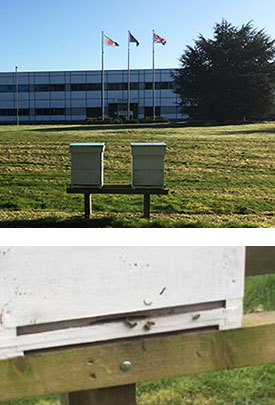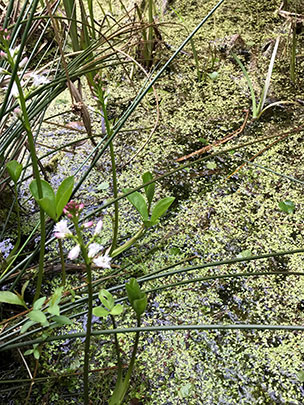Biodiversity Conservation
We both benefit from and affect biodiversity in myriad ways. Epson believes that preserving biodiversity is also vital to maintaining our business activities and our employees' lifestyles. Basically, we look to preserve biodiversity throughout our business activities and to raise employee awareness of its importance.
Approach
Epson’s business activities and employees' lives are supported by ecosystem services ("Dependences" in the diagram). Additionally, our activities have both direct and indirect impacts on nature ("Impacts" in the diagram).
The global loss of biodiversity poses a significant risk to our business operations and daily lives. To prevent further loss of biodiversity, we must reduce the negative impact on nature. At the same time, as the importance of biodiversity conservation increases, we believe that our technology can contribute to solving these challenges. This also presents a business opportunity for Epson.
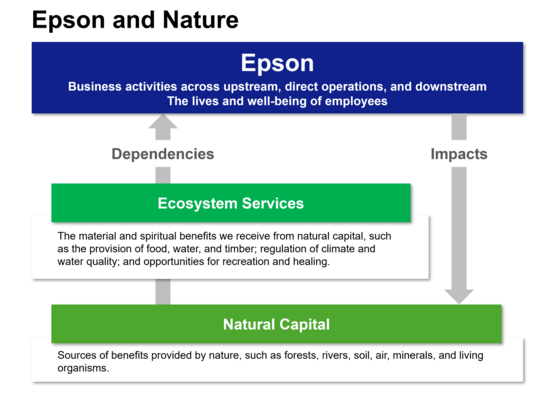
We are steadily mitigating the impact of five factors that cause biodiversity loss with initiatives in climate change strategy, resource recycling and conservation, and pollution prevention and chemical management. Furthermore, Epson is advancing its analysis and response to the relationship (dependencies and impacts) between nature and its own business and supply chain, as well as the risks and opportunities related to biodiversity.
| Factor | Relationship to Epson | Theme | Main Initiatives |
|---|---|---|---|
| Climate change | Greenhouse gas emissions | Climate change strategy |
Energy-saving product designs Production and transport measures |
| Land use | Land alternations accompanying underground resource mining | Resource recycling Resource saving |
Reduced-resource products and recycling Reduced resource inputs Waste recycling |
| Non-native species | Introduced along with imports of raw materials, parts, etc. | ||
| Overconsumption | Consumption of timber resources | ||
| Pollution | Release of chemicals into the environment due to insufficient control | Pollution Prevention and Chemical Management | Reduced inclusion in products and use during manufacturing of hazardous substances |
Related Links
Response to TNFD Recommendations
In June 2024, Epson expressed its support for the recommendations of the Taskforce on Nature-related Financial Disclosures (TNFD) and began disclosing information in accordance with the TNFD framework from FY2025.

Case Study
Forest Conservation
Epson has launched a three-year international partnership with the World Wide Fund for Nature (WWF), a global conservation organisation, to support WWF’s forest conservation and nature restoration activities at the "Deforestation Fronts" worldwide. Epson shares WWF's vision of "build a future in which people live in harmony with nature" and contributes to the preservation and restoration of forest biodiversity through its support of WWF's conservation activities.

In May 2024, Yasunori Ogawa, global president of Epson(at the time), visited a project in Sumatra, Indonesia, and observed WWF’s local activities, including the following:
- Forest and wildlife monitoring and patrols
- Promotion of sustainable agriculture and forest restoration (agroforestry) in cooperation with local communities
- Support for local communities (agriculture, education, healthcare, etc.)
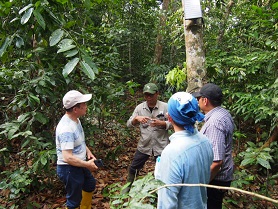
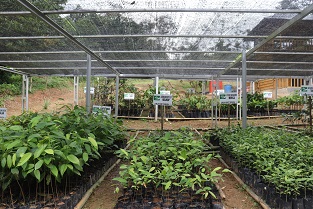
Consideration for Paper
The raw material for paper, wood, is a resource obtained from forests. Epson is mindful of paper procurement and usage from the perspective of forest conservation.
■ Paper Products Procurement
Epson manages its entire supply chain from the immediate supplier all the way back to the forest to ensure the legality, sustainability and environmental safety of the paper products we procure.
■ Internal Paper Reduction Activities
Seiko Epson corporation (Japan) is working on reducing paper usage in its internal operations. By reviewing business operations that use paper, we achieved the goal of halving the average daily paper usage per employee company-wide in the first half of fiscal 2021 compared to the same period of the previous year.
■ Promoting Paper Recycling
The paper made by Epson's dry-process office papermaking machine, PaperLab, is 100% composed of waste paper and does not use any new wood. Epson actively promotes the recycle of paper used within the company through PaperLab. Additionally, Epson manufactures printer ink absorbers, sound-absorbing materials for PaperLab using parts made from recycled paper with its proprietary Dry Fiber Technology.
Water Conservation
Epson has formed a three-year partnership with Conservation International, an international environmental NGO dedicated to protecting nature, to safeguard water resources. Under this partnership, Epson is contributing USD 1.27 million to Conservation International's watershed restoration and water quality improvement projects in the Philippines, Indonesia, and Brazil, helping to restore water sources and improve water quality in these regions. Local employees of the Epson Group are also participating in these projects as part of Epson's global water resource protection activities.
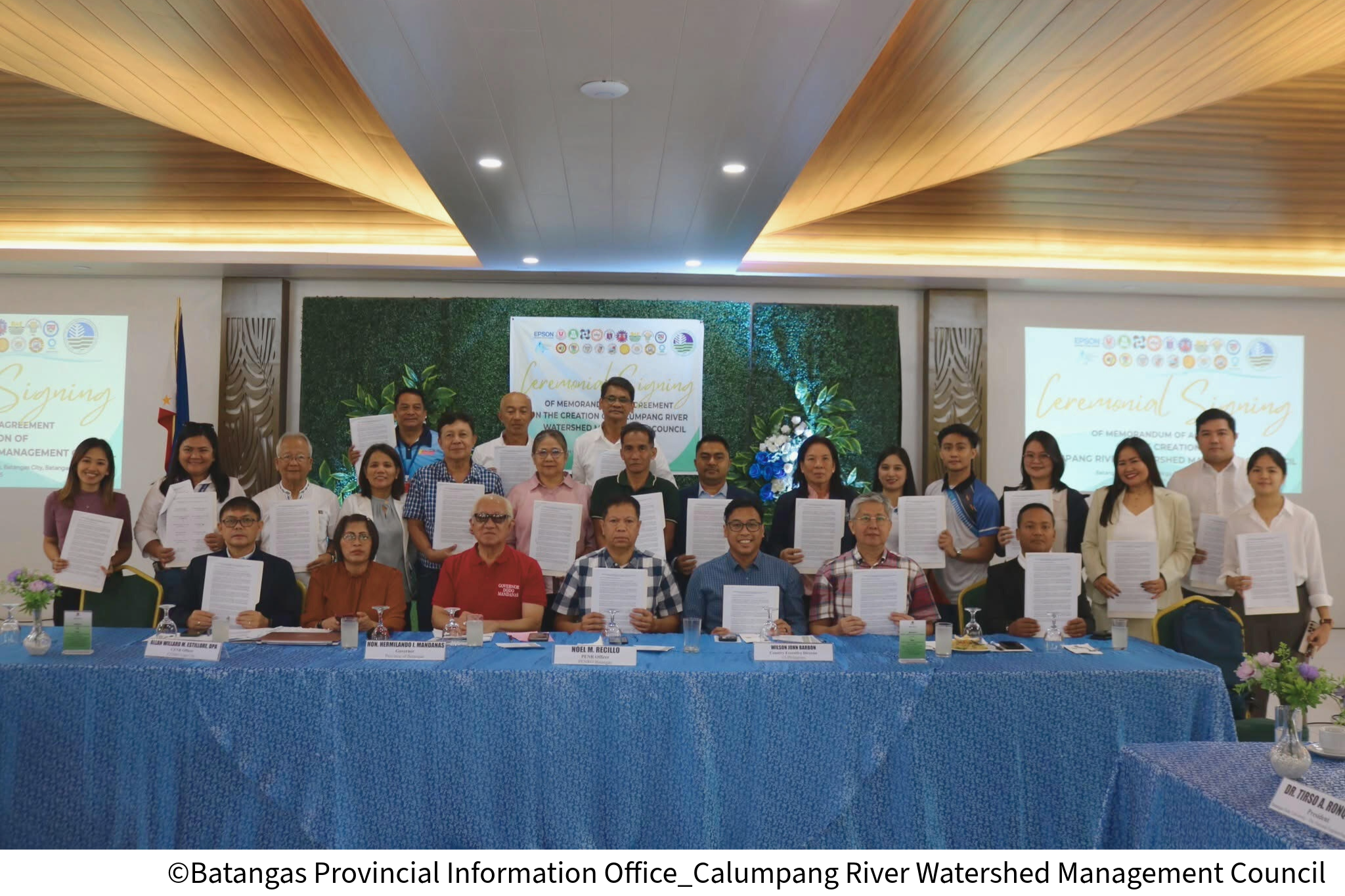
Coral Reef Transplant Project (Indonesia)
PT. Epson Batam (Indonesia) has been helping to back a coral transplant project on Abang Island since 2015 to preserve biodiversity. The project, which involves people from Indonesia's fishing and tourist industries as well as government and NGOs, was created to grow coral reefs (coral gardens) by planting coral fragments over a gradually larger area. Every summer, local Epson Group employees dive into the sea to transplant coral or check its growth. In addition to preserving marine biodiversity, this project also helps to strengthen the disaster resilience of coastal areas by reducing the risk of wave damage through the formation of coral reefs. Residents of Abang Island are hopeful that the transplanted coral can improve the environment for fish and increase their numbers.
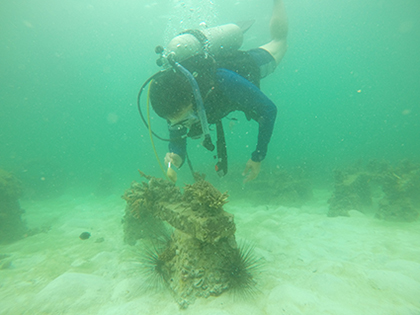

Support for Wildlife Rescue Center (Belgium)
Epson Europe B.V., Belgium Office (Belgium) continues to support the activities of Natuurhulpcentrum VZW, the largest wildlife rescue center in Belgium, through the donation of projectors and printers.
The donated equipment enhances visitor engagement and streamlines administrative operations, helping to ensure that rescued animals receive the best possible care.
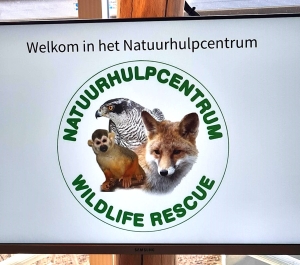
Greening and Beautification Activities (Global)
Epson conducts greening and beautification activities around the world to foster a culture in which each employee voluntarily and actively participates in local community activities as a citizen.
In November 2024, more than 70 employees of Epson (Thailand) Co., Ltd. participated in a mangrove planting project along the Gulf of Thailand, contributing to the conservation of the local ecosystem and the expansion of ocean carbon sinks.
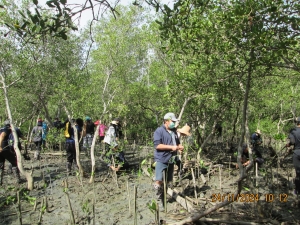
Employees of Epson Wuxi Co., Ltd. (China) and members of their families have been participating in local tree planting events that have taken place every March since 2010. In 2025, 40 participants planted trees at the event, contributing to conservation of the ecosystem and restoration of the Taihu Lake basin.
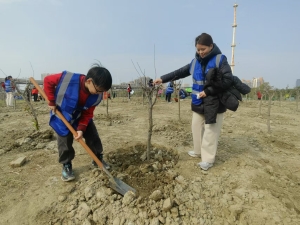
To mark World Environment Day 2024, volunteers from Epson Deutschland GmbH (Germany) picked up trash along the banks of the Rhine River in a project that also helped to keep plastic waste from flowing into the sea.
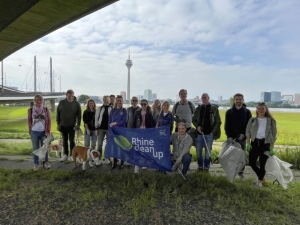
Starting in 1992, employees of Epson Portland Inc. (U.S.) have been volunteering their time to pick up garbage several times a year along a section of U.S. Highway 26, which runs just north of the company.
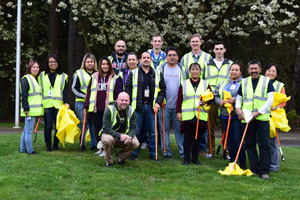
Activities in Protected Area (U.K.)
Epson Telford Ltd. (ETL) is a core production site for manufacturing ink cartridges for European market and textile ink. It was the first site within the Epson group to achieve ISO14001 and participates in many environmental preservation activities such as recycling of wastes and energy-saving. With an area of 220, 000 m², the site includes a nature reserve that many rabbits have made their home.
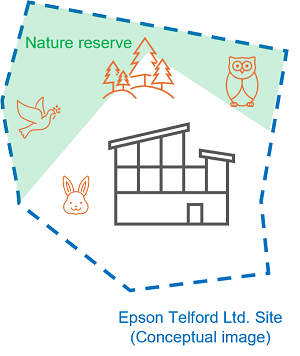
ETL has not only reduced its production based environmental impact, but also protects and supports its local environment by:
- Setting aside about 1/3 of its land for the nature reserve,
- Creating special areas to preserve the habitat of the crested newt and great burnet1, which have been specified as rare species in the U.K.
- Planting trees to offset company car emissions
- Introducing bee hives within the site so as to improve the diversity of local living creature and preserve bee species.
Also other local species have visited or have made homes within the sites.
- Raptors: Buzzards, kestrels, owls
- Birds: Partridges, red starts, yellow hammers, green woodpeckers
- Others: Foxes, etc.
1 Both species have been registered by the International Union for Conservation of Nature (IUCN) on the Red List (Least Concern: LC).
